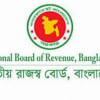Raising revenue an uphill battle: businesses

Chamber and trade body leaders yesterday said the government would struggle to generate higher revenue in the course of implementing the budget in the election year.
"The government will have to put emphasis on the implementation and expenditure nature of the budget, which is 25.22 percent bigger than the revised budget," said Shafiul Islam Mohiuddin, president of the Federation of Bangladesh Chambers of Commerce and Industry (FBCCI).
The government will need to put emphasis on implementing the mega projects as the weak physical infrastructures are the major barriers to the ease of doing business, he said.
The good sides of the budget are that the government allocated more fund for power and energy, human resource development and physical communication infrastructures. "More allocation in these areas will help attract more local and foreign investment," Mohiuddin said.
However, the government should check prices of utility services so that investors do not face any challenge in implementing projects. The government should also try to arrest the inflation rate so that consumers do not suffer, he said.
The government's bank borrowing proposal of Tk 42,029 crore, which is 1.7 percent of the GDP, might make it troublesome for private sector investors to avail loans from the banking system. "So, the government should be careful about bank borrowing," Mohiuddin said.
Abdus Salam Murshedy, managing director of Envoy Group, a leading garment exporter, echoed Mohiuddin on the implementation challenge and the private sector's bank borrowing troubles.
"Hiking tax on the garment sector and also green garment factories would discourage new investment in the sector," Murshedy said.
Welcoming the higher allocation for power and physical infrastructure, Faruque Hassan, vice-president of the Bangladesh Garment Manufacturers and Exporters Association, said corporate tax in the garment sector should be fixed at 10 percent instead of the proposed 15 percent.
Finance Minister AMA Muhith proposed corporate tax for the non-listed garment sector be 15 percent from the revised rate of 12 percent. He also proposed a 2 percent increase in the corporate tax rate for green garment factories, bringing it to 12 percent from the revised rate of 10 percent.
Muhith also proposed a 12.5 percent corporate tax for publicly listed garment companies in the stock market.
In Bangladesh, very few garment companies are listed on the stock market although, nearly 5,500 exist at present. Muhith also hinted at giving VAT exemption to the textile and export sectors. However, he did not elaborate this in his speech.
He also proposed a 100 percent duty exemption for raw materials of export oriented textiles. The minister also expanded such exemption on import of raw materials for textiles such as flax fibre and flax tow.
"We expected corporate tax reduction in all sectors, but the government proposed a reduction of 2.5 percent only in the banking sector. Had there been an overall corporate tax reduction, new investment could have been lured in for more job creation," said Abul Kasem Khan, president of the Dhaka Chamber of Commerce and Industry.
The government wants to increase private investment's share in the GDP to 25 percent, but it will be difficult if the government does not boost investors' confidence by reducing corporate tax, he said.
Khan welcomed the allocation of Tk 100 crore for skills development. The local industries for motorcycle, mobile handset, bicycle and tyre will grow due to the proposed protective measures, he said.

 For all latest news, follow The Daily Star's Google News channel.
For all latest news, follow The Daily Star's Google News channel. 








Comments